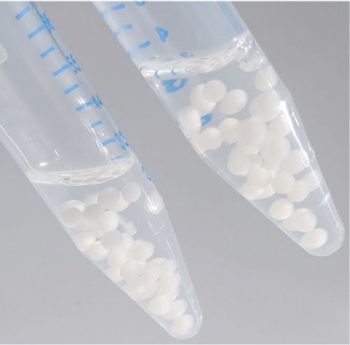Researchers in American Chemical Society (ACS) report that they’ve developed a plastic-eating E.coli that can efficiently turn polyethylene terephthalate (PET) waste into adipic acid, which is used to make nylon materials, drugs and fragrances.
The idea of finding microbes that could potentially change oil-based materials into reusable materials and prevent, and clear up, waste has been a long-held ambition.
Previously, a team of researchers including Stephen Wallace engineered a strain of E.coli to transform the main component in old PET bottles, terephthalic acid, into something tastier and more valuable: the vanilla flavour compound vanillin.
Building on that. And other research teams’ work, Wallace and a new team from the University of Edinburgh have expanded E.coli’s biosynthetic pathways to include the metabolism of terephthalic acid into adipic acid, a feedstock for nylon and polyurethanes, and many everyday products that are typically generated from fossil fuels using energy-intensive processes.
Latest News
-
Jewellers body offers grants of up to £50,000 to boost training
-
Agency overhauls community charity’s brand for free
-
Open University launches global majority voluntary sector leadership programme
-
OVO and Co-op’s foundations help launch youth climate justice funding scheme
-
Bus firm to invest £25m in green transport research
-
Myanmar earthquake: Co-operative bank launches emergency fundraising appeal
© 2019 Perspective Publishing Privacy & Cookies









Recent Stories